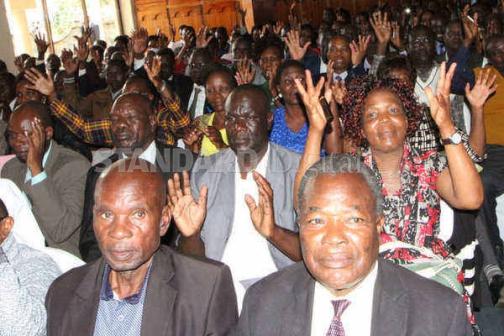×
The Standard e-Paper
Join Thousands Daily

Selected heads of primary schools were briefed about the new education curriculum as part of preparations for its testing in May 2017.
The head teachers were told that the children they are teaching will not sit the Kenya Certificate of Primary Education examination once the new curriculum is rolled out.